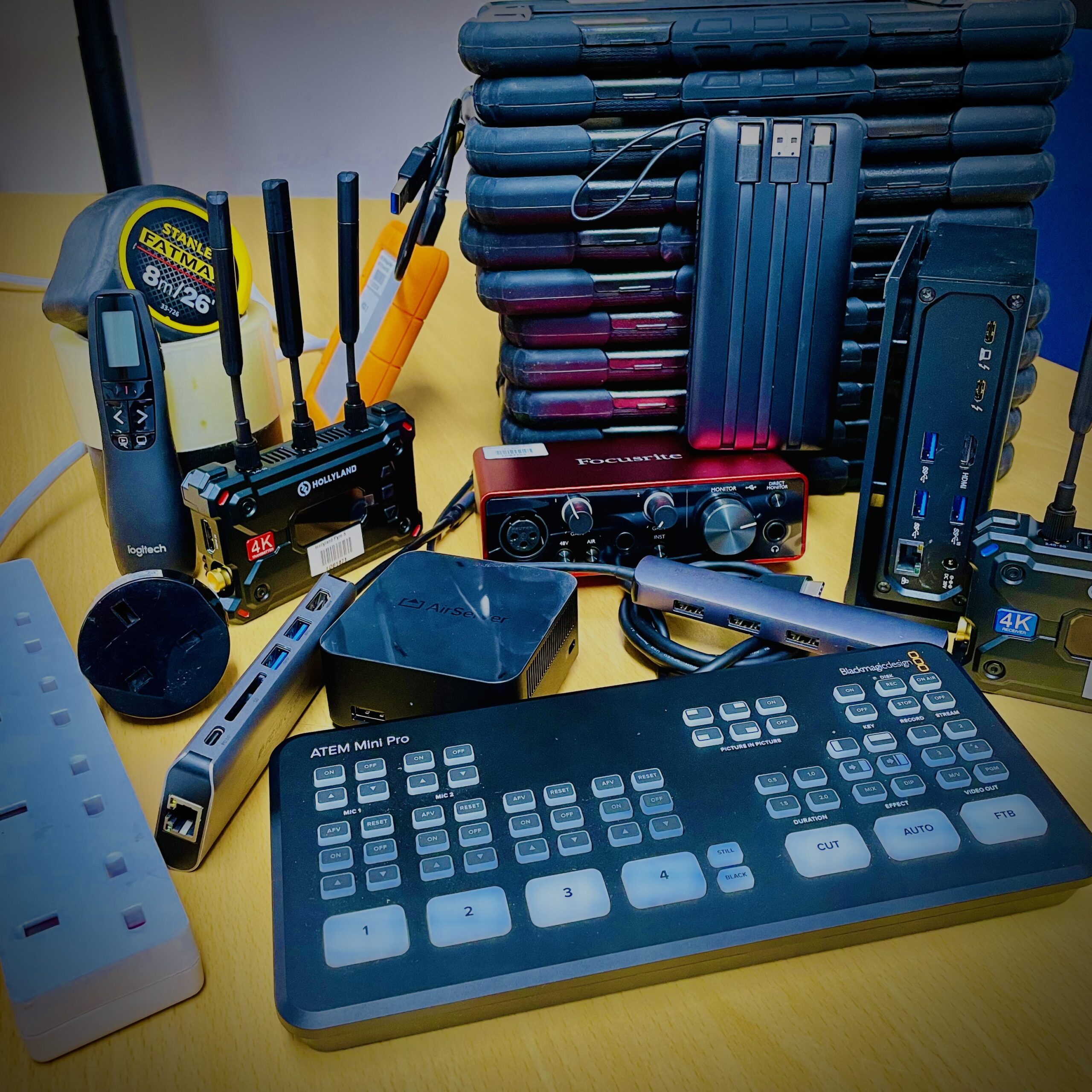Imagine having complete control over your organisation’s mobile devices, regardless of their location or operating system. That’s the power and promise of Mobile Device Management (MDM). From improving security and boosting productivity to streamlining management and ensuring compliance, MDM has become an indispensable tool for businesses of all sizes. This guide deep dives into Mobile Device Management, arming you with the knowledge needed to manage and secure your mobile assets in the ever-evolving digital landscape.
Table of Contents

What is Mobile Device Management (MDM)?
Mobile Device Management (MDM) is a type of technology used by organisations to oversee, manage, and secure all the mobile devices, like smartphones, tablets, and laptops, used by their employees. It allows a company’s IT department to remotely control these devices, ensuring they have the necessary apps, settings, and security features. This way, employees can safely access work-related information from anywhere, while the company ensures its data remains secure and private. A robust MDM solution, like those offered by Hire Intelligence UK, allows for:
Effortless Device Enrollment and Provisioning:
Streamlining adding and configuring new mobile devices to an organisation’s network, this efficient process minimises work for IT staff and users by automating many steps, ensuring devices comply with company policies from the start. It’s especially beneficial for organisations with high device turnover, guaranteeing new devices are operational with minimal manual effort.
Granular Policy Creation and Enforcement:
This allows for the detailed customisation and application of mobile device usage rules within an organisation. Policies can be tailored based on user roles, departments, or device types, covering app usage, data access, and security settings. This ensures devices adhere to organisational and regulatory standards, maintaining a secure and controlled mobile environment.
Comprehensive Security Measures Implementation:
Involving a broad array of tools and protocols to safeguard an organisation’s data and network. This includes installing security software, strong encryption, firewalls, and intrusion detection systems. These critical measures prevent unauthorised access and cyber threats, covering all aspects of mobile device usage for robust protection.
Detailed Inventory Maintenance of All Devices:
Detailed inventory maintenance involves monitoring each device’s status, location, usage, and compliance, aiding efficient resource management, upgrade planning, and policy adherence. This process is crucial for quick responses during security incidents.
Centralised Application Management:
This allows you to have control over the applications and software that is installed on each device, whereby standardisation or customisation can be achieved depending on the needs of each employee. This approach simplifies software deployment, reduces management complexity, and supports consistency and compliance across the mobile fleet.
The Evolution of MDM in 2024
MDM solutions have evolved significantly, keeping pace with rapid technological advancements and changing business needs. As we enter 2024, key trends in this space include:
Advanced AI Integration for Predictive Analytics
Incorporating advanced AI for proactive device management and early intervention for potential issues. AI algorithms analyse data to optimise performance and preemptively address security vulnerabilities, aiding in better decision-making for device management.
Enhanced Security Measures Against Cyber Threats
These include advanced malware detection, real-time threat monitoring, and multi-layered security protocols. This comprehensive security approach ensures protection against a wide range of cyber attacks, safeguarding sensitive corporate data.
Unified Endpoint Management (UEM) Integration
This integration allows for the management of all endpoints through a single platform, simplifying policy application, improving control, and ensuring consistent security across all devices.
Adoption of Cloud-Based MDM Solutions
The trend towards cloud-based MDM solutions in 2024 offers scalability, flexibility, and remote accessibility. These solutions are easily accessible from anywhere, can be scaled according to organisational needs, and ensure that the latest updates and security measures are always in place without extensive on-premise infrastructure.
Benefits of MDM for Your Business
Improved Security and Data Protection
Investing in Mobile Device Management significantly enhances the security and protection of your organisation’s data. By managing access controls, encrypting data, and implementing robust security policies on all mobile devices, MDM helps in safeguarding sensitive information. This protection extends to preventing unauthorised access, reducing the risk of data leaks, and ensuring that all communication and data storage on mobile devices comply with the highest security standards.
Enhanced Productivity through Streamlined Management
Mobile Device Management (MDM) streamlines the management of mobile devices, leading to increased productivity. With centralised control, IT teams can deploy, update, and troubleshoot devices efficiently, minimising downtime and ensuring that employees have the tools they need to work effectively. Automated workflows and easy device provisioning mean that new devices are up and running faster, allowing employees to focus on their core tasks with minimal interruptions.
Simplified Compliance with Data Privacy Regulations
MDM simplifies the process of compliance with various data privacy regulations such as GDPR, HIPAA, or CCPA. By enforcing data protection policies, recording compliance audits, and providing detailed reports, MDM makes it easier for organisations to demonstrate compliance with these regulations. This is particularly crucial for businesses that handle sensitive personal data, helping them avoid legal penalties and maintain their reputation.
Cost Savings and Avoidance of Data Breaches
Implementing MDM can lead to significant cost savings. Efficient device management reduces the need for extensive IT support, lowers the risk of costly data breaches, and extends the life of devices through proper maintenance. By avoiding data breaches, organisations not only save on potential fines and legal fees but also protect their reputation, which can have long-term financial benefits.

Managing Multiple Devices: Tips and Best Practices
Uniform Policy Implementation
Applying uniform policies across all devices ensures consistent management and security. Whether it’s enforcing password policies, setting up VPNs, or restricting access to sensitive data, uniformity in policy implementation helps maintain a secure and controlled environment, regardless of the diversity in devices or operating systems.
Regular Software and Security Updates
Keeping all devices updated with the latest software and security patches is crucial for protecting against vulnerabilities and cyber threats. Regular updates help in fixing security loopholes and improving the overall performance of the devices. Automated update policies can be set up using MDM tools to ensure that all devices are consistently up-to-date.
Comprehensive Employee Education and Training
Educating employees about the importance of device security, the proper use of mobile devices, and awareness of common cyber threats is essential. Training sessions, regular updates, and easy-to-follow guidelines can help employees understand their role in maintaining device security and avoiding potential risks.
Continuous Monitoring of Device Performance
Continuous monitoring of device performance allows for timely identification of issues, be it related to hardware, software, or security. MDM tools can provide real-time insights into device health, usage patterns, and potential security risks, enabling proactive maintenance and quick response to any anomalies.
Leveraging Automation for Efficient Management
Automation in MDM can significantly reduce the workload of IT teams and eliminate human errors. From automatic enrollment of new devices to scheduled backups and compliance checks, automation ensures efficient and consistent management of the device fleet, freeing up valuable IT resources for other critical tasks.
MDM’s Role in the UK’s Evolving Work Landscape
The UK government has announced that the new flexible working regulations will come into effect on 6th April 2024, giving employees the right to request flexible working arrangements from day one of employment. This means that Mobile Device Management (MDM) is more important than ever, as the amount of hybrid work environments is set to increase with this new regulation.
The Vitality of MDM in Hybrid Work Environments
- Adaptation to Hybrid Work Arrangements: Mobile Device Management plays a pivotal role in adapting to hybrid work models by ensuring that employees can access work resources securely from any location. It enables organisations to manage a wide range of devices, including those used remotely, maintaining the same level of security and accessibility as in-office setups.
- Robust Defense Against Increasing Cybersecurity Threats: With cyber threats becoming more sophisticated, MDM provides a robust defense mechanism. It includes features like real-time threat detection, secure data encryption, and remote device wiping capabilities, which are essential in safeguarding sensitive information against cyber attacks.
- Management of BYOD Environments: The rise of Bring Your Own Device (BYOD) policies adds complexity to device management. MDM solutions help manage these personal devices in a secure and efficient manner, ensuring that they adhere to the organisation’s security policies without infringing on the user’s privacy.
- Compliance with Data Protection Regulations: MDM assists organisations in complying with stringent data protection laws such as GDPR. By controlling how data is accessed and shared on mobile devices, MDM solutions help prevent data breaches and ensure regulatory compliance.
Going Beyond Security: Enhancing Productivity and Efficiency
MDM not only strengthens security but also enhances overall productivity and efficiency in the workplace:
- Remote Troubleshooting and IT Support: MDM facilitates remote troubleshooting and IT support, making it easier to resolve technical issues without needing physical access to the device. This capability is invaluable for supporting a geographically dispersed workforce.
- Effortless Application Management: MDM simplifies the management of applications across all devices. It allows for the centralised distribution and updating of apps, ensuring that all employees have access to the necessary tools for their work.
- Simplified Configuration and Update Deployment: MDM enables IT administrators to remotely configure devices
Hire Intelligence: Your MDM Partner in the UK
Hire Intelligence offers bespoke MDM solutions tailored to meet the unique challenges and regulatory requirements of UK businesses:
- Expert UK-Based Support: Dedicated support from UK-based experts ensures that solutions are aligned with local business practices and legal requirements.
- Industry-Leading Security Features: Advanced security protocols are integrated to protect against the latest cyber threats, ensuring data integrity and confidentiality.
- Scalable and Flexible Solutions: Solutions are designed to be scalable and flexible, accommodating businesses of all sizes and adapting to their evolving needs.
- Cost-Effective and Efficient Device Management: By streamlining device management processes, these solutions reduce the overall costs associated with IT support and device maintenance.
MDM is not just a technology; it’s a strategic investment in the future of your business. Embrace the power of MDM to harness the full potential of your mobile workforce and steer your business towards success – the safe way!





